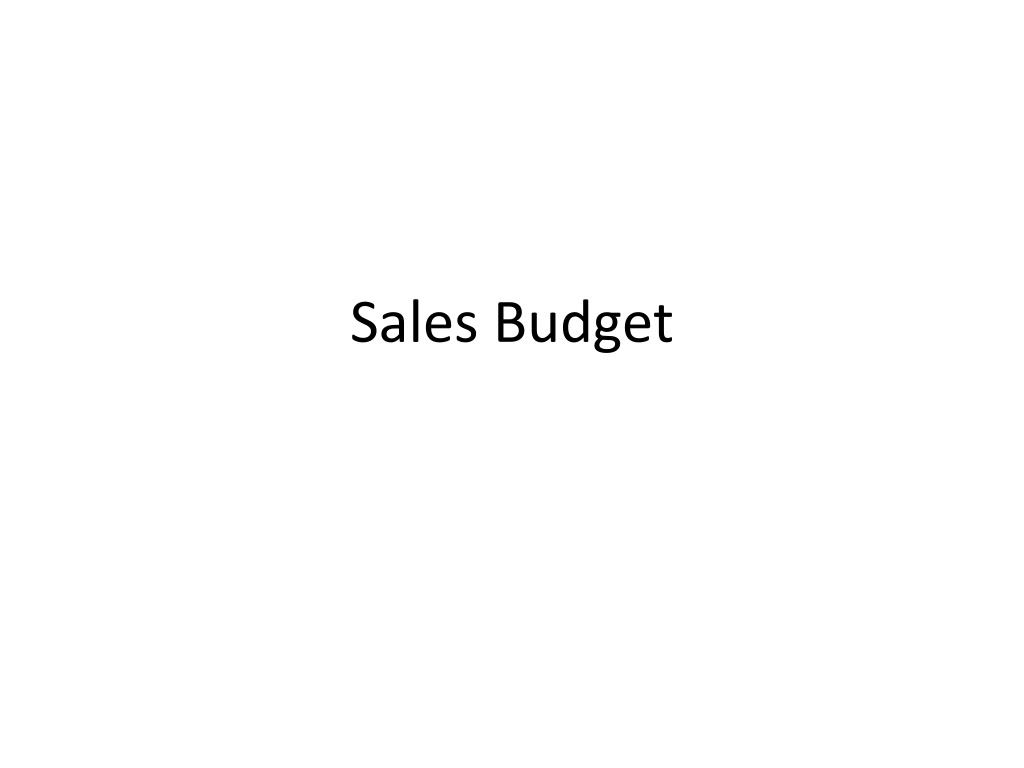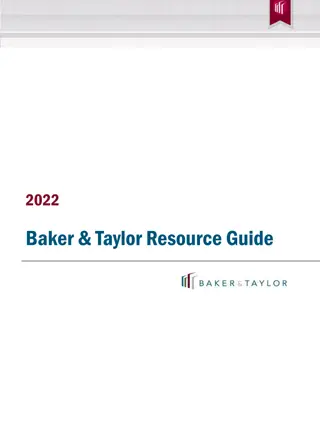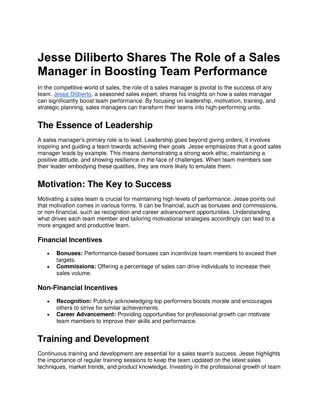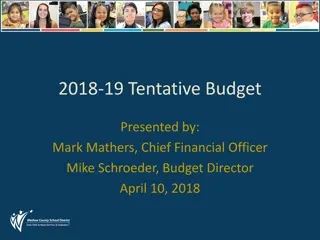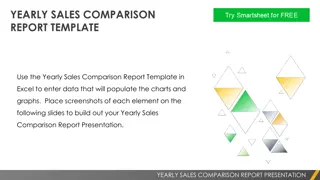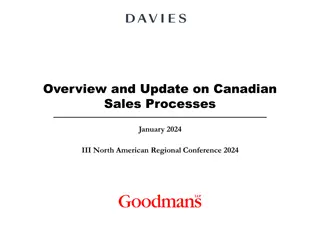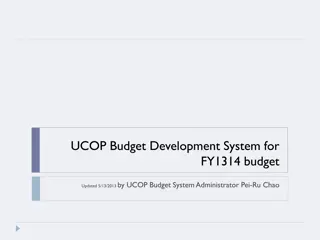Understanding Sales Budget: A Key Tool for Business Success
A sales budget is crucial for estimating sales revenue and overheads, guiding sales team efforts, managing cash flow, setting goals, and developing core strategies. Internal factors like production capacity and product development impact sales projections, while external factors such as selling channels, promotions, and market research also play a significant role. Learn how sales budgeting can optimize resources, enhance profitability, and streamline business processes effectively.
Download Presentation

Please find below an Image/Link to download the presentation.
The content on the website is provided AS IS for your information and personal use only. It may not be sold, licensed, or shared on other websites without obtaining consent from the author. Download presentation by click this link. If you encounter any issues during the download, it is possible that the publisher has removed the file from their server.
E N D
Presentation Transcript
Definition: Sales budget refers to the estimation of the sales revenue and the sales overheads for a particular period. A more accurate sales forecast means better utilization of resources, higher profitability and less wastage. Sales forecasting, which is nothing but an estimation of demand for goods or services in the market is essential for preparing a sales budget. Determine Sales Goals: Sales budget sets a target for the sales team which they have to achieve. The expected sales volume for a particular period is determined, and the efforts of the sales department are directed accordingly. NEED FOR SALES BUDGET Cash Flow Management: The company can estimate its future cash inflow and outflow through sales budgeting. This helps in determining the potential liquid cash and prepares for unfavourable market conditions. Estimate Overhead Costs: It also estimates the various administrative and sales expenses which the company has to bear other than the manufacturing cost. Thus, determining the potential profit margin. Develop Core Strategies: A sales budget provides a base for action to the managers. The managers frame their strategies and utilize the resources to attain the desired sales goals. Streamlines Business Process: All the business activities, i.e. production of goods or services, financing the operations, engaging the human resource and marketing activities, are based on the prepared sales estimate.
Internal Factors The company s inner strengths or weaknesses, influence its sales budget. It involves factors like plant s production capacity, marketing channel, promotion and advertisement, sales volume and revenue, etc. Let us now discuss these factors in detail below: Sales Trend: The past sales made by the company within a specific period plays a significant role in determining future sales possibilities. Production Capacity: The maximum utilization of the plant s manufacturing capacity should be considered for the preparation of the sales budget. Product Diversification andProduct Development: When the company enters into a new product line to increase its sales volume and profitability, it must prepare the sales budget accordingly to facilitate product development. Seasonal Fluctuation: The company has to figure out the changes in the sales trend during seasonal fluctuations like weekends, the first week of every month, festivals, etc. while determining the sales forecast.
Selling and Distribution Channel: The selected marketing channel profoundly affects the sales forecast. Like for direct sale of goods, a more accurate sales data can be gathered, and hence a better sales estimate can be prepared. Sales Promotion and Advertisement: If the product is well promoted through advertisements, offers, discounts, etc.; it increases the potential sales and thus influences the sales budget too. Price Fluctuation: The change in the price of the product creates an impact on its potential sales. Therefore, the price of the product, as well as the price of the competitor s product, must be taken into consideration while deciding the sales budget. Market Research: Research is the basis for determining sales possibilities. Sales forecasting is not just prediction but is a practical approach depending on the past market trends.
External Factors The external environment of the business consists of multiple opportunities as well as specific threats which affect all the business decisions. These factors comprise government intervention, economic condition, technological advancement, consumer demand and competition. To know about these factors in detail, read below: Government Policy and Intervention: The government controls the trade practices and the sale of specific products by imposing various laws and policies, thus affecting the sales budget too. Competition in the Market: The number of competitors and their market share should be well analyzed by the company at the time of drafting the sales budget to avoid wastage. Change in Consumer Preference and Demand: The study of consumers behaviour towards a particular product and their buying trends helps in close by sales prediction. Technological Development: When the technology changes, the risk for downfall rises. Therefore, the company must be updated with such changes to analyze the shift in consumer s preference and market occupancy. Economic Condition of the Country: The distribution of wealth within the country and its financial stability regulate the sales and performance of the company. At the time of recession when people s spending capacity decreases, the company tends to set the sales budget accordingly.
SALES BUDGET PREPARATION PROCESS: Decide a Period of Sales Budget: A sales budget can be planned accurately if a specific period is determined. It can be made monthly, quarterly or yearly. Collect Previous Sales Data: The next step is gathering the sales data or record for the previous period. It acts as a base to plan a sales budget for future sales. Gather Industry s Sales Information: The company needs to be updated with the total sales of the particular industry for a specific period. It should be aware of its market share and the expected growth of the industry within that period. Compare Sales of Consecutive Period: After collecting the sales records, a comparative analysis is required of the previous sales periods to predict the future sales possibilities. Study Current Market Trends: Next step is keeping an eye on the market fluctuations, preference and trend which helps in determining a more accurate sales budget. Communicate with Customers: The customer reviews and buying habits should be analyzed to know their buying trends and intentions for preparing a sales budget. Prepare Sales Forecast: Based on the above data and analysis regarding past sales, market trends and customer s response, sales for a particular period is forecast. Compare Actual Sales with the Forecast: Finally, the actual performance or the sales volume is compared with that of the estimated sales to find out the accuracy of the sales budget. It provides for taking the corrective measures in future.
